FNBSPH-UHAS trains journalists on nutrition, public health to drive change through media advocacy
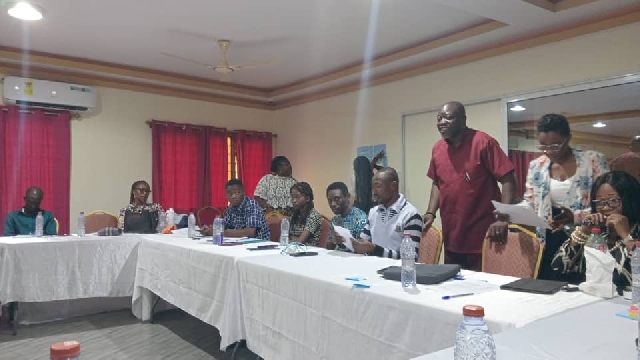 A scene from a two-day capacity building workshop for journalists from the Volta and Oti Regions organised by FNBSPH at UHAS, in partnership with WOMEC
A scene from a two-day capacity building workshop for journalists from the Volta and Oti Regions organised by FNBSPH at UHAS, in partnership with WOMEC
The Fred N. Binka School of Public Health (FNBSPH) at the University of Health and Allied Sciences (UHAS), in partnership with Women, Media and Change (WOMEC), has organised a two-day capacity building workshop for journalists from the Volta and Oti Regions.
The training aimed to deepen media engagement in addressing critical public health and development issues in Ghana, particularly graduate unemployment and childhood stunting.
The training workshop also served as the official launchpad for the UHAS-NKABOM Mastercard Project, a transformative $9.8 million initiative made possible by a 10-year grant from the Mastercard Foundation.
The project seeks to empower three million young Ghanaians through dignified employment while tackling the persistent problem of malnutrition and stunting in children.
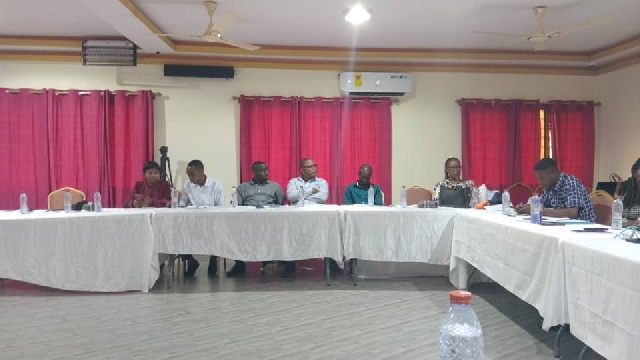
Professor Frank Baiden, Dean of the Fred N. Binka School of Public Health and Principal Investigator of the NKABOM Project, described the initiative as a "watershed moment" in the school’s 12-year history. He emphasised the project, named ‘Nkabom’ meant ‘togetherness’ in Akan, and was rooted in collaborative impact, involving seven Ghanaian institutions alongside McGill University in Canada.
“Many public health graduates remain jobless years after completing their studies, despite the heavy investments made by their families and the state,” Professor Baiden noted.
“This project seeks to reverse that trend by reforming the university curriculum to include stronger entrepreneurial components.”
The restructured curriculum aims to balance theoretical knowledge with practical, hands on experience targeting a 50-50 ratio. The project will introduce innovative approaches such as agro waste processing, aquaculture technology, and full value chain agribusiness education.
These efforts are designed to equip graduates with the skills needed to create employment rather than seek it.
The Nkabom Project also aims to create sustainable livelihoods for youth, women, and marginalised communities.
He stated community-based research was currently underway to develop scalable models to address childhood stunting in rural and underserved areas.
Professor Baiden used the platform to appeal to journalists to champion the project's mission through their reporting. He stressed the vital role of the media in promoting social accountability, raising public awareness, and advocating for development.
He appealed to media practitioners to use their platforms to advocate for the completion of UHAS’s permanent campus at Fodome.
"We need action to complete the structure and move the campus to its permanent home,” he said.
Media practitioners who participated in the workshop pledged to use their platforms to amplify the impact of the Nkabom project and hold duty bearers accountable in the interest of public good.
The Nkabom Project aspires not only to transform public health education in Ghana but also to build resilient, self-sustaining communities by 2030.
Trending News

Lawyer slams Ghana, ECOWAS over silence on Togo’s constitutional crisis
12:38
Ghanaian extradited to U.S. over multi-million dollar romance scam
06:58
Asantehene meets Kusang Traditional Council in push for lasting peace in Bawku
12:31
TEWU-GH declares indefinite nationwide strike over union representation dispute
12:23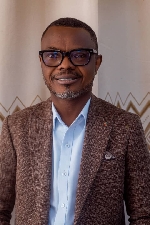
Volta GWCL boss outlines achievements and urges sustained commitment amid transition
00:11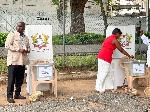
GJA goes to the polls today
13:34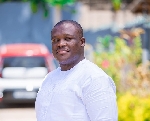
Communications Minister assures press freedom as anti-misinformation Bill heads to Parliament
11:54
Fafa Radio CEO calls for unity and support for new GJA leadership
23:55
E/R: Atiwa West DCE leads reclamation drive to combat dangers of abandoned mining pits
09:40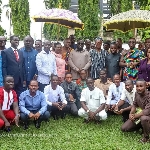
Ashanti Regional Lands Commission board inaugurated to enhance land governance
11:38




